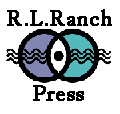Book Review -- Homeopathy Today -- Lia Bello
This book review is reprinted with the permission of the National Center for Homeopathy:
101 S. Whiting Street, Suite 16
Alexandria, VA 22304
(703) 548-7790, Fax (703) 548-7792
www.nationalcenterforhomeopathy.org
E-mail address: info@nationalcenterforhomeopathy.org
Impossible Cure: The Promise of Homeopathy
by Amy L. Lansky, PhD
R.L. Ranch Press: Portola Valley, CA, 2003
Reviewed by Lia Bello, RN, FNP, CCH
This new book is one of the clearest and most comprehensive introductions to homeopathy in recent times. In Impossible Cure, Amy Lansky, PhD, explains in a remarkably reader-friendly way the science and art of homeopathy. By including dozens of patients' stories as well as interviews with practitioners, she weaves a well-crafted overview. Her language is not complex, making it accessible to the non-technical reader. This book may very well contribute to the transformation of homeopathy from the ugly duckling of medicine to the swan that it deserves to be.
The book is written from two vantage points: that of a loving mother sharing the heart-wrenching story of her son's struggle with autism and how homeopathy cured him-and that of a skeptic delving into the mysteries of healing. Amy Lansky was a computer scientist working for NASA when the journey of her son's healing with homeopathy began. In her words, "It did not take long for me to realize that my son's miraculous cure from autism was far more revolutionary than any computer program or technological gadgetry." She also soon decided that she had to write a book to let others know about homeopathy.
Lansky shares the story of how her son, Max, recovered fully from moderate autism. The fact that her son's homeopath found the simillimum on the first try makes it all the more amazing and gives hope to us all. At first I thought that the title, Impossible Cure, was too dramatic for an introductory book on homeopathy, but after reading about Max and the other vignettes of healing, I have decided that it is appropriate.
The story of Max's cure is followed by chapters that delve into deep issues, such as, "What is Disease? What is Cure?" Lansky acquaints the reader with the relationship between the symptom pattern and the simillimum. In order to do this, she presents a historical picture of the development of the varied strategies homeopaths may use when they choose a remedy and its potency. LM potency use is included, so the book joins just a handful of others modern enough to speak of this relatively new phenomenon.
Lansky gives a short explanation of related applications of homeopathy outside the classical homeopathic paradigm, including combination remedies, isopathy, anthroposophic medicines, homeopathic prophylaxis, homeopathic "specifics," cell salts, intuitive and machine-generated prescribing, Flower Essences, herbalism, and energy healing. Lansky states here that it is "important for patients to understand which treatment methods are actually 'homeopathy' and which are not."
Impossible Cure also includes up-to-date information on homeopathic research and its significance in relation to modern medicine. The author's skill at word crafting is noticeable here-whereas other books' descriptions of chaos theory, ultra dilutions, and cluster physics had lost me, this book has actually made these complex theories understandable to my brain - no small feat!
Lansky guides fledgling consumers through finding a practitioner, experiencing an initial interview, taking a remedy, and responding to it This is a great help to someone who has no idea what to expect when stepping into homeopathy. The chapter, "Cure is Possible," relates many success stories drawn from an impressive, international list of practitioners, patients, and their family members - including dramatic reversals of Alzheimer's disease, cancer, fibromyalgia, and mental illness. These are instructive cases illustrating the efficacy of homeopathy.
Impossible Cure sticks to principles and philosophy, completely foregoing any discussion of materia medica and how-to information. It reminds me of George Vithoulkas' little book, Homeopathy: Medicine of the New Man, which I used to recommend to new patients back in the '80s. Since then there have been many good books that have tried to tell the whole story of homeopathy, like Ullman's Discovering Homeopathy, Koehler's Handbook of Homeopathy, and Ullman and Reichenberg-Ullman's The Patient's Guide to Homeopathic Medicine. But it is refreshing and somehow even more legitimate to hear it from Lansky, a cured consumer. My only criticism of her book is that it is lacking perspective on how difficult it can be and how long it takes to become an accurate and effective classical homeopathic prescriber. Though we proponents of homeopathy tend to remain optimistic about the potential for cure, the many complicated cases that go uncured with homeopathic treatment should also be factored into the equation.
Modern issues surrounding the tenuous position of homeopathic practice in the U.S. are discussed in the chapter, "The Road Ahead." Issues of licensure, certification, legal practice, access to remedies, homeopathic training, and health freedom legislation are covered. Few other books address these timely issues.
Since most people, even in enlightened circles, still do not understand homeopathy and its potential, the homeopathic community is faced with the challenge of getting the word out - and the even larger challenge of providing accessible, affordable, professional, homeopathic health care - thereby liberating society from the monopoly of conventional medical care. Homeopathy must grow into a viable healthcare choice for the many - not just for an elite few - and this will take massive education at the grassroots and a shift in how homeopathy is now accessed.
Impossible Cure succeeds in demystifying homeopathy's approach to healing and will help people understand what embarking on homeopathic treatment is all about. The facts and history are accurate and well-documented. Everyone interested in homeopathy can enjoy this book, from the rank beginner to the seasoned homeopath. The book speaks of the promise that homeopathy holds for those who step forward to use it and for practitioners who work with it daily to cure their patients.

